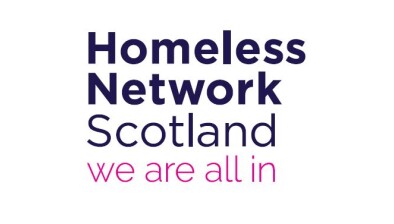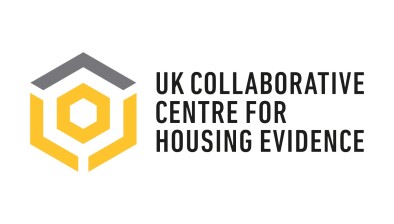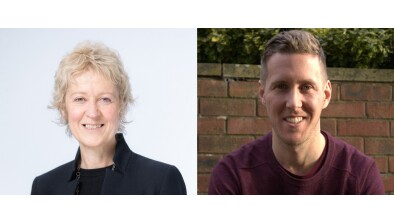Jon Sparkes: Ending homelessness across Scotland is possible but only by helping those seeking asylum in this country too

Jon Sparkes
Addressing the issue of homelessness amongst migrant groups across Scotland is crucial for ending homelessness across the country, writes Jon Sparkes.
Over this summer it was hard to ignore the stories in the news about individuals making perilous journeys over to the UK to seek safety here. In the media we saw heart-breaking images of people risking their lives for the opportunity of a better, safer future and we heard stories of terrible personal hardship, of people fleeing war and persecution in their countries of origin.
While there is no questioning the hardship many people face before seeking asylum in the UK, much less attention is given to the myriad of challenges people experience when going through the asylum application process once they arrive here. If you were to ask someone what the support across Scotland looks like for people seeking asylum, I expect very few people would be able to tell you. Upsettingly though, current UK government policies mean that this is the point where we see so many facing incredible pressure that can easily force them into destitution and homelessness.
The current pandemic has unquestionably placed a huge pressure on this country and people seeking asylum in Scotland have been left in incredibly desperate situations as a result. The already lengthy applications process for asylum has slowed down even further, meaning people are left in limbo for months, or even years in some cases, as they await a decision from the Home Office. This is all while staying in the most basic forms of temporary accommodation, barred from working and with just £37.75 a week - just over £5 a day - to cover all their essentials such as food and toiletries, or no financial assistance at all if their accommodation provides basic amenities.
It’s hard to express the impact living like this can have on a person day after day, but this is made even worse in the current circumstances where people are struggling to do simple things such as shop for food, collect their medicine or get support from their local foodbank due to lockdown and social distancing measures.
In ‘normal’ times, we often sadly see people falling through the cracks of the asylum system or even disengaging with it. With the amount of time spent in limbo and unable to build their lives, for some they feel like having no immigration status seems the better option. For others, the lack of understanding of the systems and processes here, as well as threadbare ongoing support, such as legal advice, and language interpreting can mean they face homelessness and lack of status without realising what they are entitled to.
Given the added pressure of the pandemic, we are likely to see even more people forced down this path. With no immigration status, no rights to support and therefore vulnerable to all forms of exploitation, we see so many people pushed to the fringes of society due to a system that is simply failing people.
There is a real shortage of data and information that gives us a clear picture of how many people seeking asylum are destitute and still living in their Home Office accommodation or are rough sleeping, but given that Glasgow supports more people seeking asylum than any other council area in the UK, we know it to be a prevalent issue. This is further reinforced through our work in our Crisis centre in Edinburgh, where every day our coaches help people around the city facing homelessness, many of whom have come to this country as migrants seeking a safer life.
No one facing homelessness should be left to struggle and by helping people to access sympathetic advice and legal support, and guiding them through the asylum application process, we have been able to put many people on a path to leaving homelessness behind for good. Throughout the pandemic, support with practical things such as food vouchers, smart phones to access the internet, data top up and wellbeing packages have also been a lifeline for those having to self-isolate.
This is not an issue we can or should tackle alone. There are so many other organisations across Scotland already doing amazing work to help those facing homelessness and destitution while seeking asylum here, most of whom work in Glasgow, where we don’t have a centre. Recognising that by working together, we can have much greater reach and impact, we launched our emergency grants programme earlier this year to support more people facing homelessness during this pandemic.
As part of this programme supported by players of People’s Postcode Lottery, we are able to provide financial assistance to smaller grassroots organisations supporting people facing homelessness during this difficult time, helping even more people across the country. This includes Community InfoSource, a charity working in Glasgow. Their W-ASH Project supports asylum seekers with their housing needs and particularly those facing destitution and homelessness. During the pandemic, they have provided food to people self-isolating in accommodation and directed others to new foodbanks. They also supported new asylum seekers being accommodated in special hotels in the city centre, provided digital support for those with no smart phones or top up for data. Alongside this, they have been able to work as part of this local community to help identify people who had dropped out of the system and were currently sofa surfing to help get them back in the application process and get both their immigration status and right to support confirmed.
None of us want homelessness to exist and in reality, it shouldn’t - we know that it can be ended for good, but this means extending support to everyone, regardless of where they are originally from. What we need to see during the pandemic and beyond is an end to evictions into homelessness from asylum support accommodation. In addition, the UK government need to take action to ensure there are no gaps in the legal and financial support for people seeking asylum in Scotland, and everyone is able to access this to prevent more people from facing homelessness and destitution.
In the meantime, and more than ever before, the grassroots support for anyone seeking asylum who is facing destitution has been so incredible and must continue. We are committed to being part of this across Scotland and are grateful that with the support of players of People’s Postcode Lottery, we are able to work with organisations like Community InfoSource and W-ASH Project to bring us closer to ending homelessness for good.
- Jon Sparkes is chief executive at Crisis








